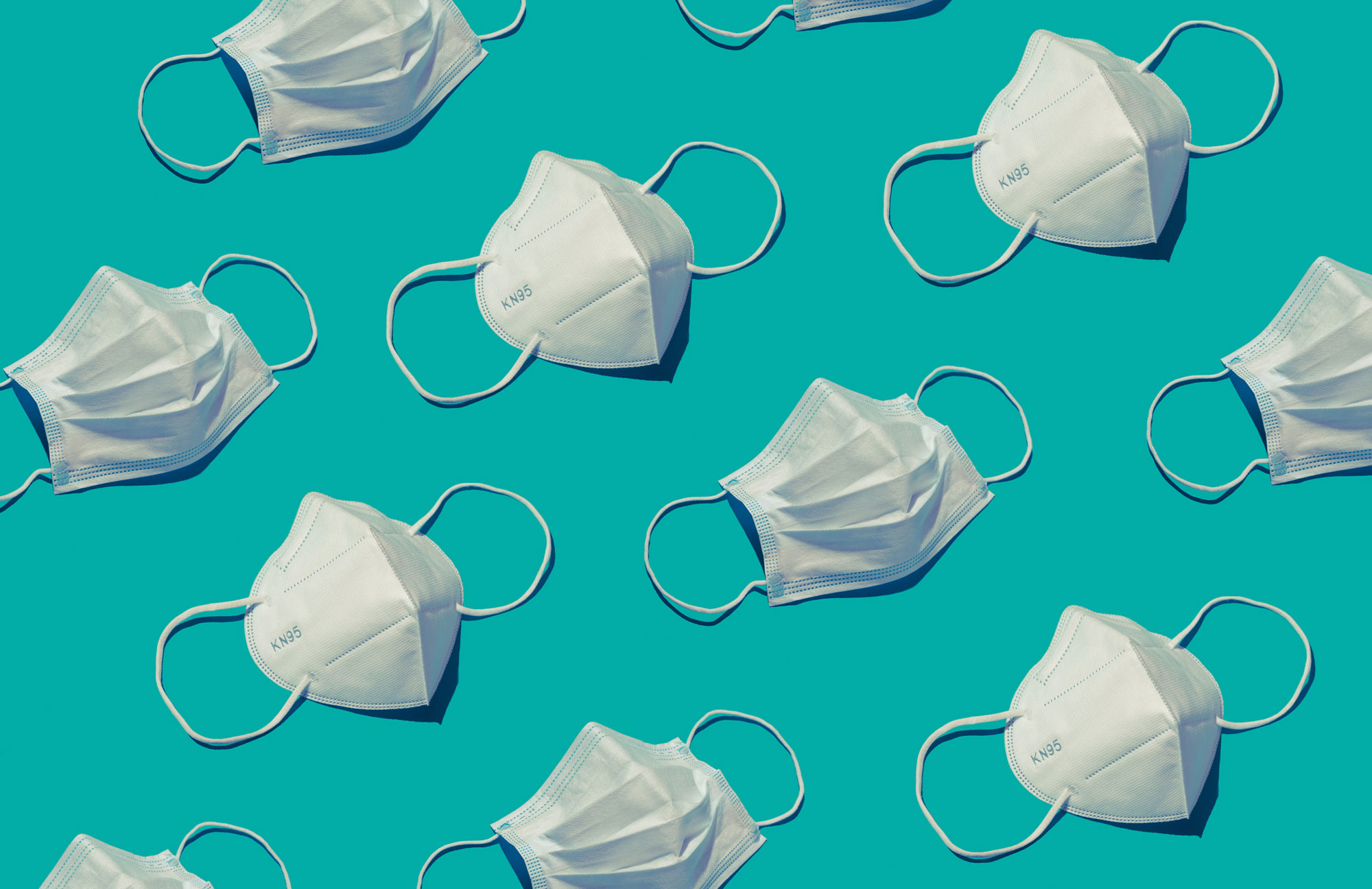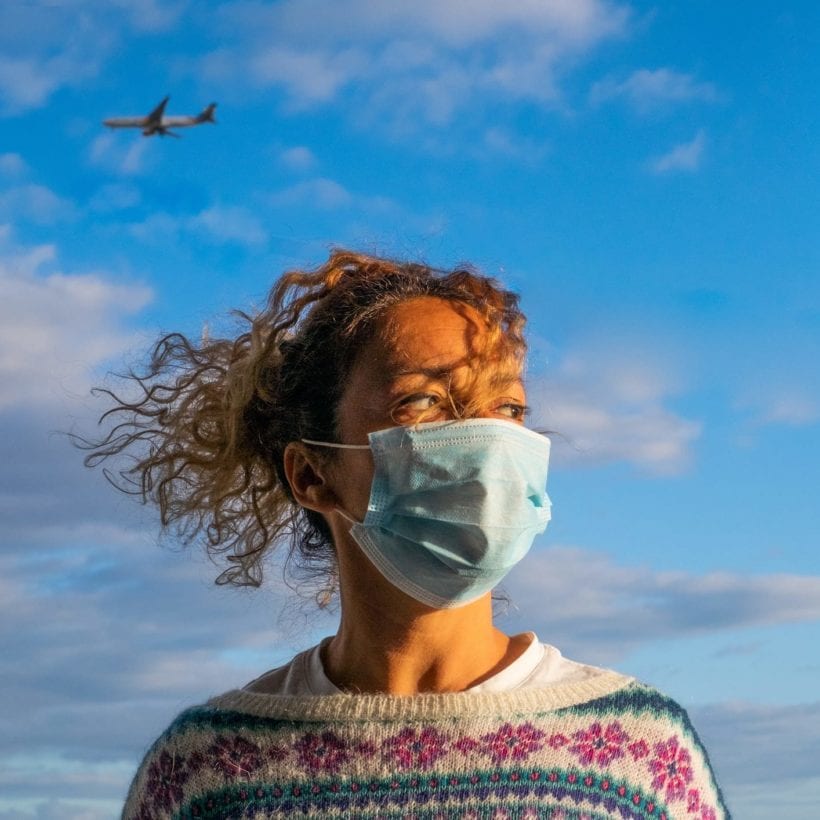The content of this article is not to be used as a replacement for medical advice. As always, consult your healthcare professional regarding concerns for any health condition and refer to the CDC for up-to-date best practices for protecting yourself against COVID-19.
At the end of 2021, we had exuberant, ambitious, we-made-it-through-the-pandemic plans to get together for the holidays with much-missed family at a huge, luxe VRBO in Florida. Sure, the Omicron variant was picking up steam around us, but we had been so careful, especially since my teens weren’t eligible for the booster yet.
On the morning of our flight, we rapid-tested, and you can probably guess the rest – my daughter tested positive (followed by my son two days later), and that kicked off the most depressing week of canceled fun and self-pitying isolation… ever. Yet another holiday season and precious vacation week down the drain — lost to this ridiculous virus.

What did we do wrong? And now that we are all cautiously rebooking all those canceled and postponed trips, how can we make certain we do better this time? Here are some of the best practices for avoiding contracting COVID-19, according to our experts and the CDC, so you can finally enjoy some R&R again in your life.
Meet the Experts
Catherine Troisi, Ph.D. is an infectious disease epidemiologist with UTHealth School of Public Health
Get Vaccinated, but Time It Right
Currently, COVID-19 vaccines are readily available for teens, and last week the CDC officially signed off on COVID-19 vaccines for kids under five., which should start rolling out this week.
Catherine Troisi, Ph.D., an infectious disease epidemiologist with UTHealth School of Public Health, reminds us that the most important deterrent is the most obvious: Make sure you’re vaccinated and boosted. (Get double-boosted if you’re eligible.) But, pay attention to the calendar, “If you haven’t gotten your first (or second) booster yet, the time is about two weeks before your trip to maximize protection,” says Troisi. “If you haven’t been vaccinated, you’ll need to plan way ahead of the trip so you’ll have time to be boostered.”

Prep Like It’s 2021
Beginning two full weeks before your trip, rev up your offense by modeling your best depths-of-the-pandemic defense. “Use a ‘Swiss cheese’ prevention method,” says Troisi, “Not just one strategy, but layers of them.”
- Ditch the cloth masks and use N95 or KN94 masks at all times indoors. Dispose of your mask once it gets dirty or if the inner part gets moist.
- Skip all indoor dining since it means removing your mask to eat.
- Avoid indoor situations that are poorly ventilated or where there will be crowds, even while masked.
- Wash your hands regularly and thoroughly for at least 20 seconds throughout the day. If soap and water aren’t easily accessible, keep a bottle of hand sanitizer containing at least 60% alcohol content.
- Be selective about who you hang out with. “Like in the early days of the pandemic,” says Troisi, “Have your pod and avoid others, if possible.”
Embrace Work From Home
Have you headed back into the office post-pandemic? Now might be a good time to exercise any company hybrid or WFH policy. The reality of commuting (especially on public transportation!) and normal office life, where you’re likely in prolonged close contact with unmasked coworkers, means added risk. The same goes for your kids’ activities. Can they skip (indoor) volleyball and art classes for the two weeks before your trip? Every little exposure reduction helps.

Test Daily
Unlike a year ago, rapid antigen testing is readily available (and in the U.S., it’s free). One of the best ways to prevent the spread of the disease is to test daily leading up to a big trip, even if you’re not currently experiencing any symptoms, as people can be asymptomatic. If you find yourself positive, the latest quarantine recommendations are isolation for five days without a fever for 24 hours, followed by five days of strict mask-wearing. You may be able to catch it in time to still enjoy the trip (and avoid spreading it to the rest of the family).

Invest in Travel Insurance – Just in Case
And if all else fails, pick up some travel insurance at least a month before your departure date. When you see those dreaded two lines on your antigen test, it may be too late to get your money back for all the hotels and excursions you’ve painstakingly researched and booked otherwise. As you shop for insurance, ask specifically about COVID-19 policies, as not all travel insurances cover this. Ask what happens if you test positive before your trip and if you test positive while you’re mid-trip. Make sure you’re comfortable with the answers. Going somewhere that might have iffy healthcare? Ask about emergency evacuation, where you (and your traveling companions) can get airlifted to a more suitable medical facility, even in another country.
While heading back into lockdown life for a bit may feel like going backward, it’s a small price to pay for your first vacation in years!







